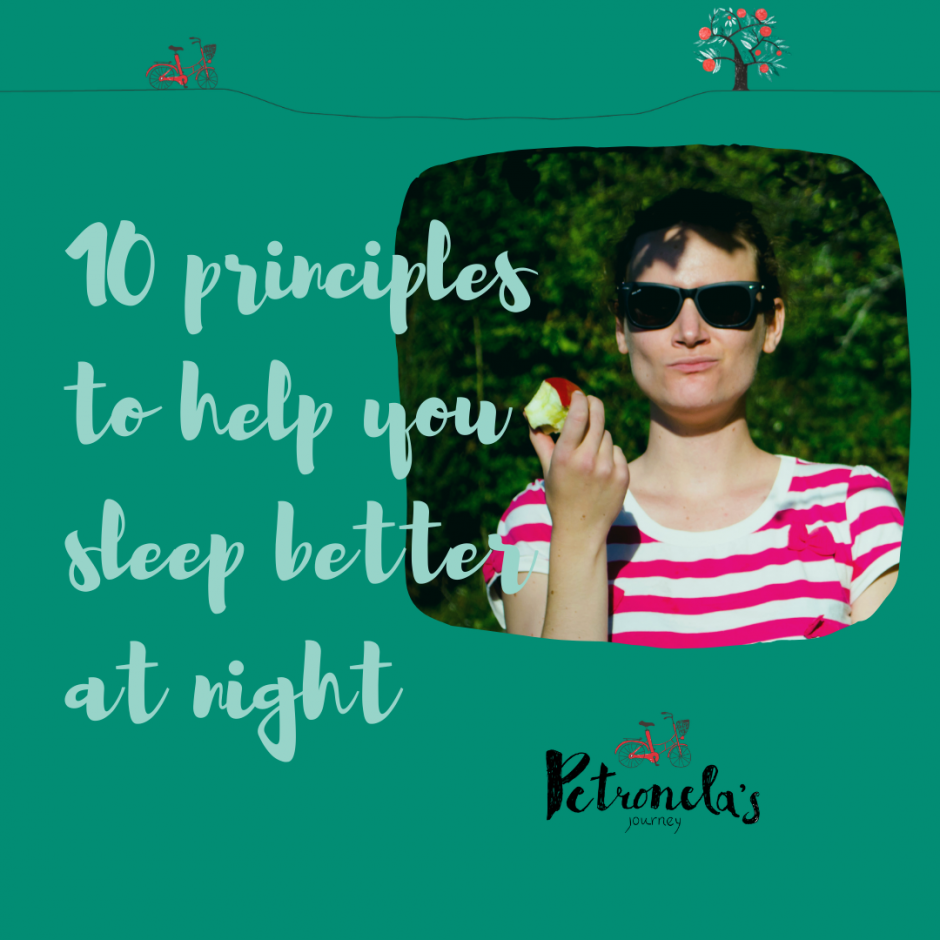You probably know there is something called sleep hygiene. This can be defined as the principles you should follow when you want to sleep well at night.
The results of my unscientific, spontaneous survey show that even though you sleep more than 8 hours a night, it is not always a good night’s sleep. The reasons differ: children wake you up at night, children wake you up early in the morning, you have bad dreams, you generally sleep poorly. However, the causes were often also due to bad sleeping habits: you can’t get to bed early enough, you watch TV before bed, you fall asleep with a mobile phone in your hand, you fall asleep in front of the TV and then you can’t fall asleep again when you get to bed.
Experts recommend working on proper sleep hygiene to increase the quality of your sleep. I have to admit that when I don’t sleep well, I’m tired, I am irritate, I don’t perform well, I make a lot of mistakes, everything seems to take me a bit longer.
I will share some techniques hat could help you sleep better at night. Maybe you’ll find out things you didn’t know about. I’ll comment on them from my own perspective because I’m far from perfect and I don’t follow all of the principles. You can choose what suits you best. But it is important to start following them if you want to improve the quality of your sleep. I will say one thing here: decide on one new habit that seems simple and you will easily be able to implement it into your daily life. Don’t choose more things. You can feel distressed when you are unable to follow through. Pace yourself 🙂
- Try to go to bed and get up at the same time, even on weekends and holidays. This is something that I work on and I can say that I am successful. I specifically plan to be in bed by 22.00. That means getting ready for bed around 21.00 – turn off my computer, TV, take a shower, walk my dog sometimes. Most of the time, I fall asleep with a phone in my hand. That is because I read ebooks mostly. I have a yellow light with limited intensity on so it doesn’t stimulate me too much.
- Learn to cope with stress – easier said than done. I realise the importance of coping with stress and there are some strategies that work for me (I’ll share them in future posts) but this is something I struggle with. However, I try no to stress myself about things that I can’t control or change. It is something like my mantra. Maybe you can try it, too. Write it down and place it visibly at your desk. Whenever you’ll start feeling under pressure, repeat the words. It may be helpful.
- Exercise regularly, but do not exercise before bedtime. This one is easy. This is something that I have no problems doing 🙂
- Do not eat at least 2-3 hours before bedtime. This one is also easy. I actually can’t lie down after a meal.
- Limit drinking fluids before bed so you don’t have to go pee in the middle of the night. Yep, this one is tricky. I try only taking one of my medications with a sip of water in order to avoid mid-night trips to the bathroom. This one is work in progress.
- Limit or omit caffeine, alcohol and cigarettes before bedtime. These are stimulants that prevent you from falling asleep. I know my body, so I know not to drink coffee or black/green tea after 14.00. And I don’t smoke, so no problem there.
- Take a hot bath 1-2 hours before bedtime. As your body gradually cools down, you become sleepy. This one is interesting. I haven’t tried it in a long time.
- Go to bed when you feel sleepy. This is so true. When I miss this window of opportunity, it takes me forever to fall asleep. You can see how important it is to listen to your body. It asks for everything.
- Your bedroom should be a place of rest. You should look forward to going to the bedroom. If you can and your apartment/house is big enough, do not turn your bedroom into an office. I don’t even have TV in my bedroom.
- If you wake up at night and can’t fall asleep, try to stop the flow of thoughts. Mindfully stop the train of thought and take deep breaths. This usually helps me fall asleep again faster.
Sources:
The Lupus Encyclopedia, Donald E. Thomas, Jr., M.D., FACP, FACR
https://www.vyspimesa.sk/article/sk/pravidla-spankovej-hygieny
My own strategies

